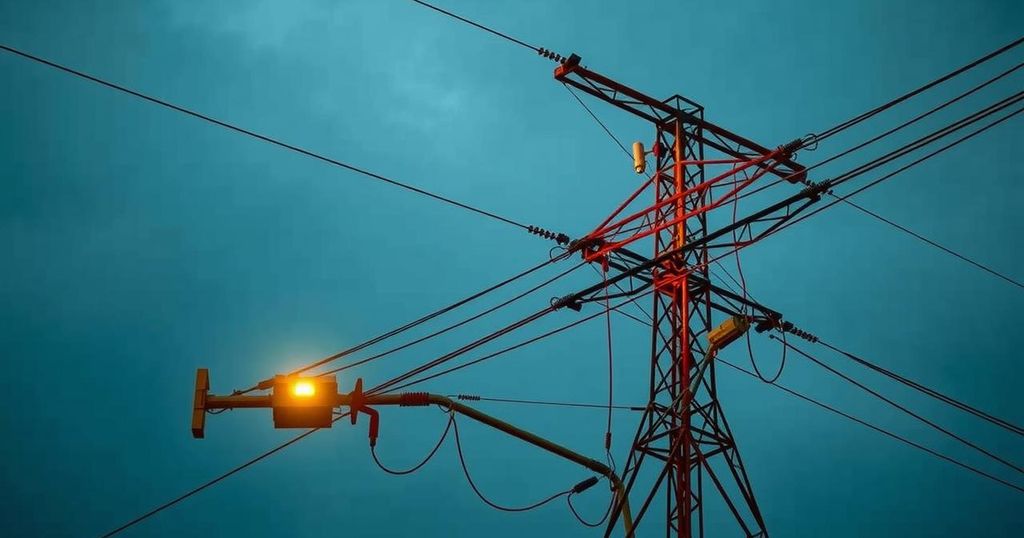Cuba Recovers from Tropical Storm Oscar as Power Restored Across Provinces

Cuba has swiftly restored power to much of the country after Tropical Storm Oscar caused extensive damage and led to six fatalities. The storm, initially a Category 1 hurricane, resulted in severe flooding and mudslides, particularly in eastern provinces. Despite the challenges, over 70% of the nation’s electricity was restored by Tuesday, especially in Havana, where 90% of residents regained power. This situation emphasizes the need for improvements in Cuba’s energy infrastructure amid increasing vulnerability to storms.
On Tuesday, Cuba made significant strides in reestablishing electricity across the island following the devastating effects of Tropical Storm Oscar. The storm, which initially struck near Baracoa as a Category 1 hurricane, diminished to a tropical storm but caused extensive damage in eastern Cuba, including the destruction of powerlines, mudslides, and severe flooding. The small town of San Antonio del Sur was particularly hard-hit, with a violent flash flood resulting in the loss of six lives, including that of a young child. Reports indicate that many regions experienced rainfall exceeding 10 inches (25 cm), which flooded agricultural lands and damaged critical crops such as bananas and coffee. Recovery efforts remained challenging in Guantanamo as raging rivers and obstructed roads hindered access to essential areas. In the mid-afternoon, Cuban authorities announced that they had stabilized the national electric grid after it had suffered multiple failures since Friday due to Oscar’s approach, which left ten million residents without power. By Tuesday, over 70% of Cuba had its electricity restored, with expectations for additional power plants to become operational in the near future. In Havana, which endured lesser effects from the storm, the grid operator revealed that 90% of customers had their power restored by midday.
The recent impact of Tropical Storm Oscar has highlighted the vulnerabilities of Cuba’s power infrastructure. The timely restoration of electricity is essential for the country’s recovery and resilience, particularly following the grid collapse that left millions without power. The aging state of Cuba’s oil-fired power plants, exacerbated by declining oil imports from key partners, has raised concerns about the sustainability of energy production in the country. This incident serves as a reminder of the broader challenges facing Cuba’s energy sector, especially in the context of severe weather events that can disrupt essential services.
In conclusion, Cuba has made remarkable progress in restoring power following the devastating Tropical Storm Oscar, particularly in areas largely unaffected by the storm. However, the aftermath reveals systemic vulnerabilities within the electric grid and the urgent need for modernization of energy resources. The loss of life in San Antonio del Sur underscores the human cost associated with such natural disasters and the challenges posed by climate-related incidents. Continued efforts are necessary to ensure resilience in both energy infrastructure and disaster response strategies.
Original Source: www.westhawaiitoday.com





